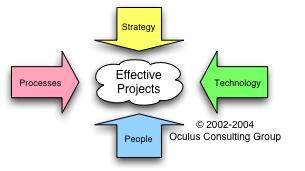Time to Revisit Shared Services
As organizations find the current business environment enticing for evaluating these problems, and revisiting the opportunities of shared services, some of the biggest problems that could arise will be challenges that are of that organization’s own making.

By Oculus Consulting Group LLC
Many organizations took advantage of the past 20 years to implement a shared services philosophy and organization. Some succeeded while others failed miserably. Higher education entities were slow to implement these operations because the economy provided what they needed most – more students. Now, the combination of declining student enrollments, declining state funding, and rising tuition costs have necessitated that these institutions take a serious look at their operations for possible shared service benefits.
For many organizations in the industrial and service sectors, the Y2K challenge represented the impetus for revisiting the decentralization of administrative processes. Today, many of these organizations have found that the proliferation of technological advances and implementations have again created decentralized operations resulting in redundant personnel resources, multiple operating facilities, duplicative information systems, and multiple suppliers and customer contacts. What was once a shared service model has become a decentralized operating structure with repetitive service models and costs.
As organizations find the current business environment enticing for evaluating these problems, and revisiting the opportunities of shared services, some of the biggest problems that could arise will be challenges that are of that organization’s own making. We believe that there are simple constraints, which if not discovered and averted could thwart any potential gains being solicited through shared services.
“We understand that technology implementations associated with shared services initiatives are only a part of the total solution.”
Is the organization’s culture conducive to shared services?
An organization’s culture will be a critical determinant in implementing successful changes. Your culture can be adaptive and open to change, neutral, or closed and obstructive. Today’s mobility in personnel work performance, increased accessibility, interconnected technology systems, and focus on data sharing have likely embedded unseen constraints to shared services within your organization. A culture assessment of your entity will be an essential first step to mapping the challenges to shared services so that your managers can do what they do best, manage shared services effectively. Implementing or re-implementing shared services back into your organization involves scrutinizing the shared services impact across the enterprise and on individuals throughout the organization. Lack of complete and transparent communication and support from senior management levels can jeopardize your initiative. A culture assessment can also provide foundational evidence that will be helpful in other organizational initiatives. At Oculus Consulting Group, we use a competing values framework in assessing organizational culture to ensure a broad assessment of variables to be addressed, while focusing on the critical culture elements that could derail this initiative. We understand the role of organizational culture, how it will impact this initiative, and more importantly how to manage the necessary culture change adjustments to ensure your organization’s initiative will be a success.







Here comes another technology project?
While technology is not necessarily the most critical success factor, it is a significant enabler for shared services success. Many organizations immediately see their shared service implementation as just another technology implementation project. System integration, technology upgrades, performance reporting initiatives, and standard ERP solution upgrades can be part of the initiative, but should not be the sole focus of the endeavor. Engagement of service providers, technology providers, third-party implementation partners, internal process reengineering, and project management resources could drive the organization back into the technology implementation box. That box will create additional obstacles for achieving the desired performance enhancements and that could derail the project from the outset. Organizations that see the initiative as just another technology project will revert to the culture and behaviors that will be difficult to overcome. While a clear outcome and scope are critical, there should be flexibility in how to deliver the technology component of this initiative, and as situations arise, some flexibility in how to move the technology scope as well. More significantly, technology-related issues could be defused by the appropriate use of Project Management and Steering Committee structures. At Oculus Consulting Group, we understand that technology implementations associated with shared services initiatives are only a part of the total solution. Our experience and demonstrated competence in managing large scale technology implementations can assist organizations by freeing resources to focus on the bigger picture.
Is this a “big” change, or just “change”?
For many of the frontline participants in your organization, this initiative will represent considerable change. And for many of them, that change is synonymous with fear. It is an unspoken rule that most shared services initiatives fail because of a lack of political support at the lowest levels of the organization. Shared Services will require that the business units cede control of certain support functions, HR or finance, and accounting or procurement, to a centralized operation. The loss of headcount, budget, control, and even power associated with this initiative can be threatening for a business unit. The instinctive reaction is naturally to resist the initiative. This may be even stronger in the case of globalized services, where regional or country managers can put up a strong fight. Organizations can preempt this resistance by executing strong and robust change management strategies throughout the entity from the outset of the project. At Oculus Consulting Group, we understand that change management is a critical component of the overall project charter and essential to a successful implementation of shared services within your organization. Our demonstrated expertise with past shared service implementations can add value to your initiative and ensure you are properly prepared to engage the total organization.
Is there a business case?
Shared service operations can have a high cost of initialization and operation during the first two years of existence, as measured by the cost per transaction, the cost of re-work and technology revision, implementation personnel participation, etc. In addition, organizations find that there are often significant indirect costs incurred during the implementation and initialization period including the cost of shadow operations, costs associated with missed opportunities, customer experience inconsistencies, and the resources required to maintain operations while the implementation proceeds. There are a host of benchmarks against which a shared services operation can measure its operations. Often executives find themselves attempting to replicate historical performance, peer organization performance, or industry standards and norms. The most important performance metrics to your organization may be known, or only anticipated. Ensuring that the business case includes these metrics will assist your entity in ensuring a long-term view of the project. Organization and project budgets will need to be set and managed. It will be easy to spend millions of dollars on a poor initiative. At Oculus Consulting Group, we have assisted organizations in establishing and then monitoring project budgets to ensure both qualitative and quantitative benefits can be measured and not just project costs. Understanding the entire business case can assist the organization in re-engaging employees and managing the business initiative for the long term.
Concluding Thoughts
Implementing or re-implementing shared services within your entity is a major change initiative that can drive significant business benefits in terms of reduced costs, better services, improved quality, speed and accuracy of data, and a tighter and more efficient enterprise-wide control environment. However, while success is not a given, there are many examples of shared services operations that have achieved their full potential.
Shared services can be a powerful solution to a plethora of organizational administrative problems – but it’s unlikely to be the only one, especially considering what’s been taking place in the world of technology in recent years. Organizations that are considering implementing or re-implementing a shared services model need to look at all options before giving the go-ahead. At Oculus Consulting Group, our expertise and assistance have helped organizations transform their vision for shared services into a measurable reality of improved organizational performance.
To learn how you can secure our services and assistance, please contact us.
© 2018-2021 Oculus Consulting Group LLC
Oculus Consulting Group LLC and “Transform Your Organization’s Vision into a Measurable Reality are registered service marks of Oculus Consulting Group LLC.

This Post Has One Comment
Thought provoking.